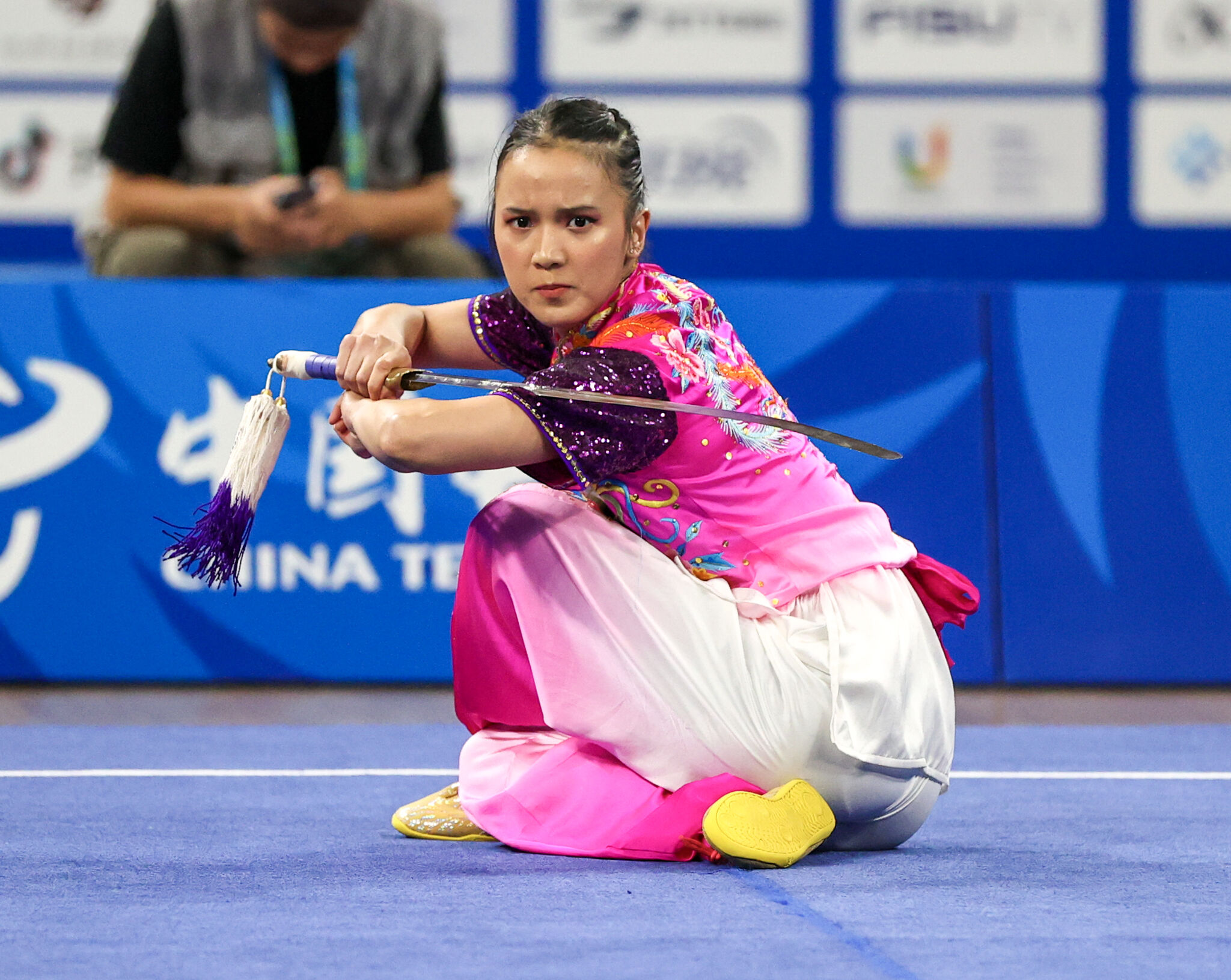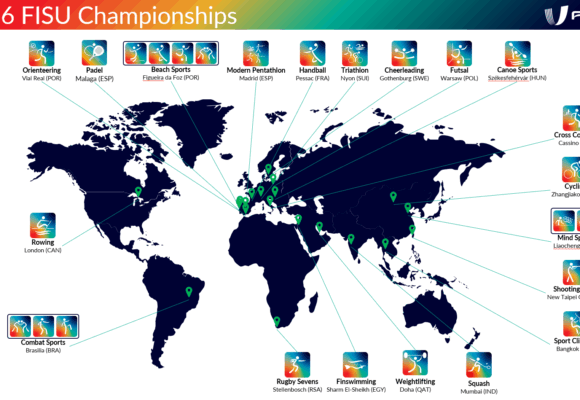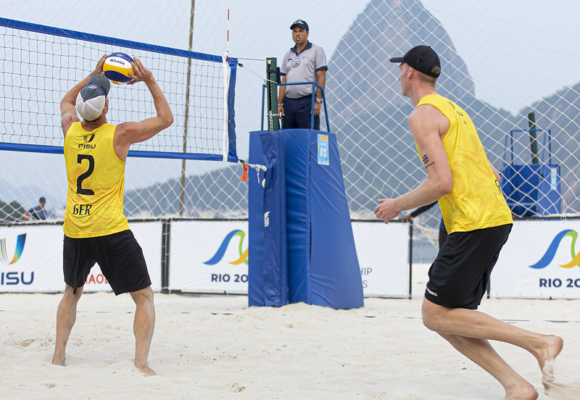Sunday marked the second and last day of Taolu Wushu at the Chengdu FISU World University Games and host China added three gold medals to the four it won on opening day.
Taolu Wushu refers to a set of routine that consists of basic offensive and defensive movements performed either bare-handed or with weapons of the martial art.
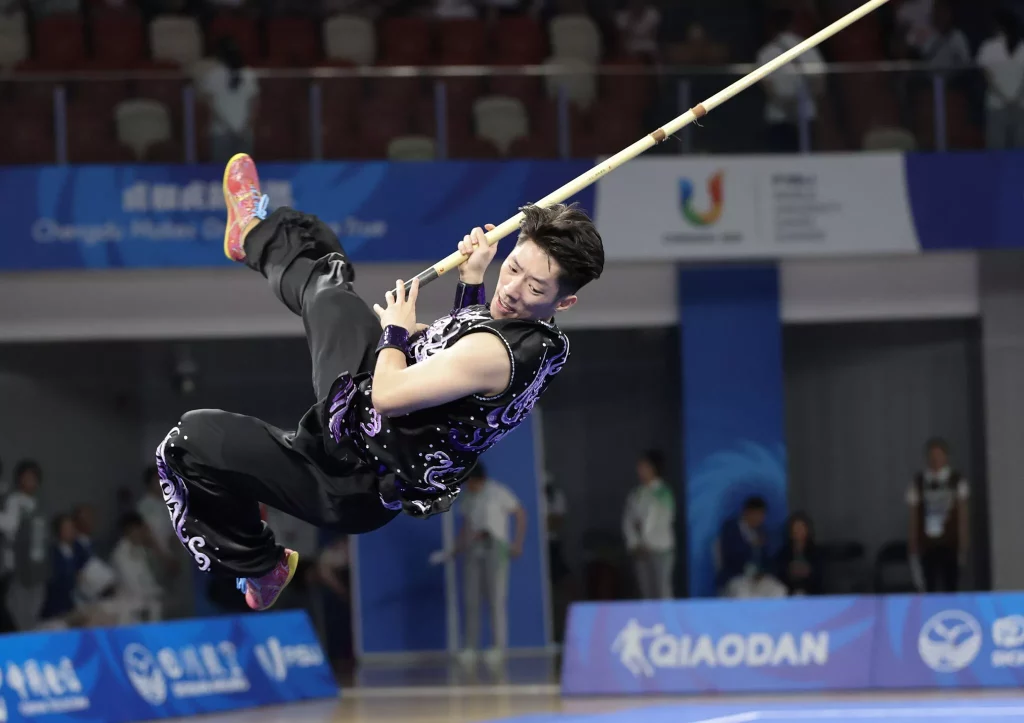
After triumphing in the men’s nanquan a day earlier, Cao Maoyuan, from Chengdu Sports University, earned his second gold of the FISU Games, thanks to 9.753 points in the nangun event.
“Winning two gold medals was expected as we aimed to secure two,” said Cao. “I am glad I have transformed this expectation into reality by adjusting my mood in the competition. “My coach’s unwavering support and our cooperation are critical in achieving such a feat.”
Team China’s other wins on the day came in the women’s taijijian and men’s daoshu, courtesy of Chen Xiaoli from Zhejiang University and Jin Zhedian of Tianjin University of Technology.
Meanwhile, Iran’s Hoesseine Sayed Mohammad shocked the Chengbei Gymnasium crowd by winning the men’s gunshu event with a score of 9.660.
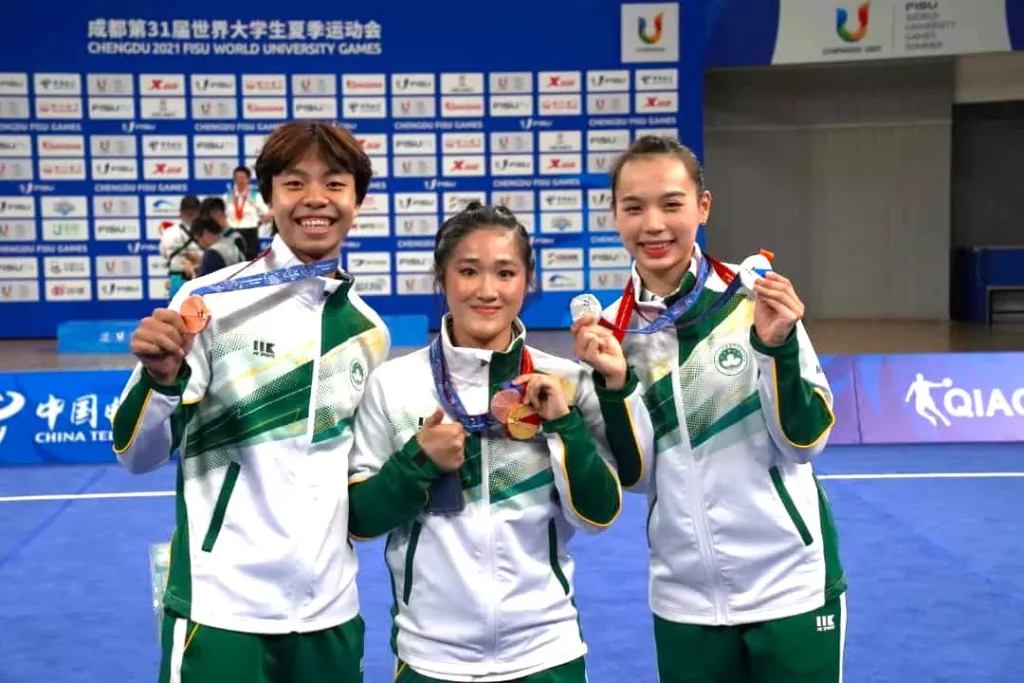
However, the Zanjan University student athlete took last place in the daoshu after dropping his weapon mid-performance, earning sympathy from the whole stadium, which loudly cheered on him.
Other winners on Sunday included Indonesia’s Mauriskha Nandhira in women’s jianshu, Macau, China’s Wong Sam In in the women’s nanquan Malaysia’s Hui Ling Tammy Tan in the women’s qiangshu, as well as Chinese Taipei’s Sun Chia-hung in the men’s taijiquan.
Like Cao, other student athletes were competing for a second consecutive day.
Among them, Hui Tak Yan Samuei of Hong Kong, China who took bronze in the men’s taijiquan after claiming gold in the taijijian on Saturday.
“I prefer the taijijian because it’s traditional taiji, it’s old and powerful inside. On the other hand, taijiquan is modern and new, and the idea is like filming a trailer of a movie, so I tried my best to show it to the audience because I love both of them.”
Some even had to attend both the morning and evening sessions to compete, like Sham Hui Yu Lydia from Hong Kong Polytechnic University, who placed third in the women’s qiangshu, which she enjoyed more.
“Because in the morning, jianshu is too early for me. I am not used to waking up at 5 a.m. and it is my first event so I feel more tired and sleepy but in the afternoon I am more awake.”
Written by Noor Saleha Salem, FISU Young Reporter
